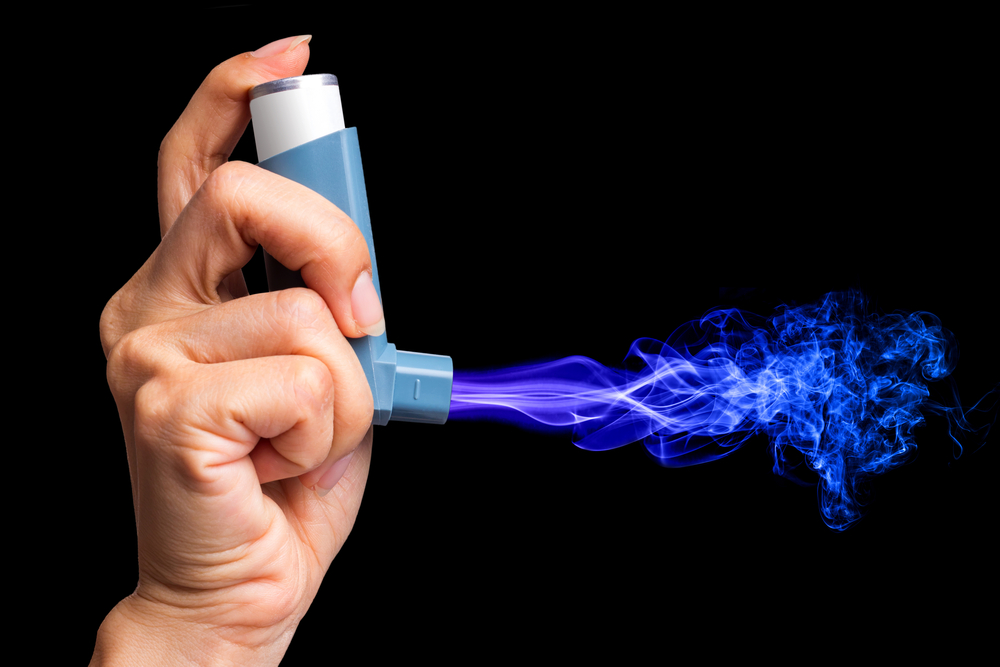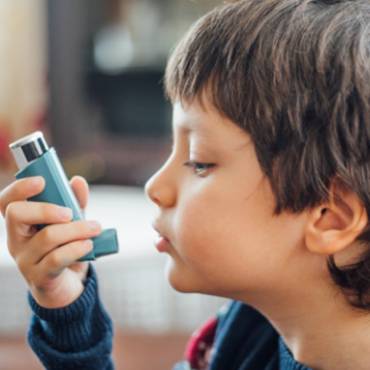Asthma is a lifelong, incurable chronic lung condition. The symptoms are usually mild, but they can build up to a more serious state and result in an asthma attack.
What is asthma?
Asthma is a condition that occurs when inflammation and excess mucus blocks the airways carrying air to and from the lungs. Various studies report that in the US alone, an estimated 25 million people are living with this condition.
Reacting to certain substances inhaled, asthmatics at first experience difficulty breathing. When the usual symptoms like shortness of breath, coughing, wheezing and tightness in the chest become severe, it can result in an asthma attack. This condition is also known as an exacerbation, which can be treated at home. If the attack doesn’t subside with home treatment, get to a doctor as asthma can be a life-threatening. To provide relief from the symptoms, doctors may prescribe asthma medication.
What are the causes of asthma
Inflammation of the small tubes (bronchi) which carry air in and out of the lungs results in asthma. When asthmatics come into contact with anything that irritates their lungs, their airways constrict and there is an increase in the production of sticky mucus (phlegm).
Also Read: What are the Effects of Skipping Your Asthma Medication?
Here are the various causes that trigger symptoms of asthma:
Genetic factors Genes play a significant role in the development of asthma. Those with a family history of asthma are more likely to get it.
Airway and chest infections Respiratory infections including cold and flu viruses are common triggers of asthma.
Smoke Tobacco or second-hand smoking leaves you susceptible to asthma. Additionally, people who are exposed to chemicals or other pollutants are also at risk.
Apart from underlying causes, various other factors like airborne irritants, food allergies and even emotional issues can trigger asthma.
Also Read: Pet Allergens and Asthma
What are the symptoms of asthma?
Symptoms of asthma range from mild to severe. In most cases, people only experience occasional symptoms; few people suffer the symptoms over continued periods of time.
Some common symptoms of asthma are:
- – Wheezing
- – Coughing, especially at night
- – Shortness of breath
- – Tightness, pain or pressure in the chest
Every asthmatic patient doesn’t experience the same symptoms; also, symptoms experienced by the same person can vary from one asthma attack to the next. Also, people who experience any of the symptoms mentioned above don’t necessarily have asthma. In many instances, asthmatics lead a regular life without experiencing any symptoms while others suffer on a daily basis. Some people come up against asthma symptoms only while exercising.
When the symptoms worsen, they can build up to an asthma attack. Some signs of a severe asthma attack are:
- – Severe and constant wheezing, coughing and tightness in the chest
- – Being too breathless to eat, speak or sleep
- – Rapid breath and heartbeat
Treating asthma and its attack
Asthma can’t be cured, but its symptoms can be prevented with proper medication and precautions taken to avoid asthma triggers.
There are various medications to control asthma that your doctor may prescribe. These include:
Inhaled corticosteroids and other anti-inflammatory drugs Drugs under this category include Beclomethasone, Mometasone and Fluticasone. By reducing swelling and mucus production in the airways, they are lifesavers that prevent full-blown attacks.
Leukotriene modifiers Zafirlukast, Montelukast and Zileuton are among medications that provide relief from symptoms for up to 24 hours.
Long-acting beta agonists Medications under this category include Salmeterol and Formoterol. These drugs open the airways, helping asthmatics breathe.
Apart from medications, various products have proven effective in helping asthmatics. Inhalers, which are portable devices that deliver drugs to the lungs and nebulizers, also known as breathing machines, are among them. Nebulizers are usually prescribed for infants, small children and older adults.
Must Read: 9 Ways to Fight Asthma and Allergies
Conclusion
Asthma is a life-long condition that has no cure. The only treatment of it is knowledge, or knowing how to deal with the condition at the time of an asthma attack. Keeping medication at hand at all times and avoiding triggers can help you manage the condition.



